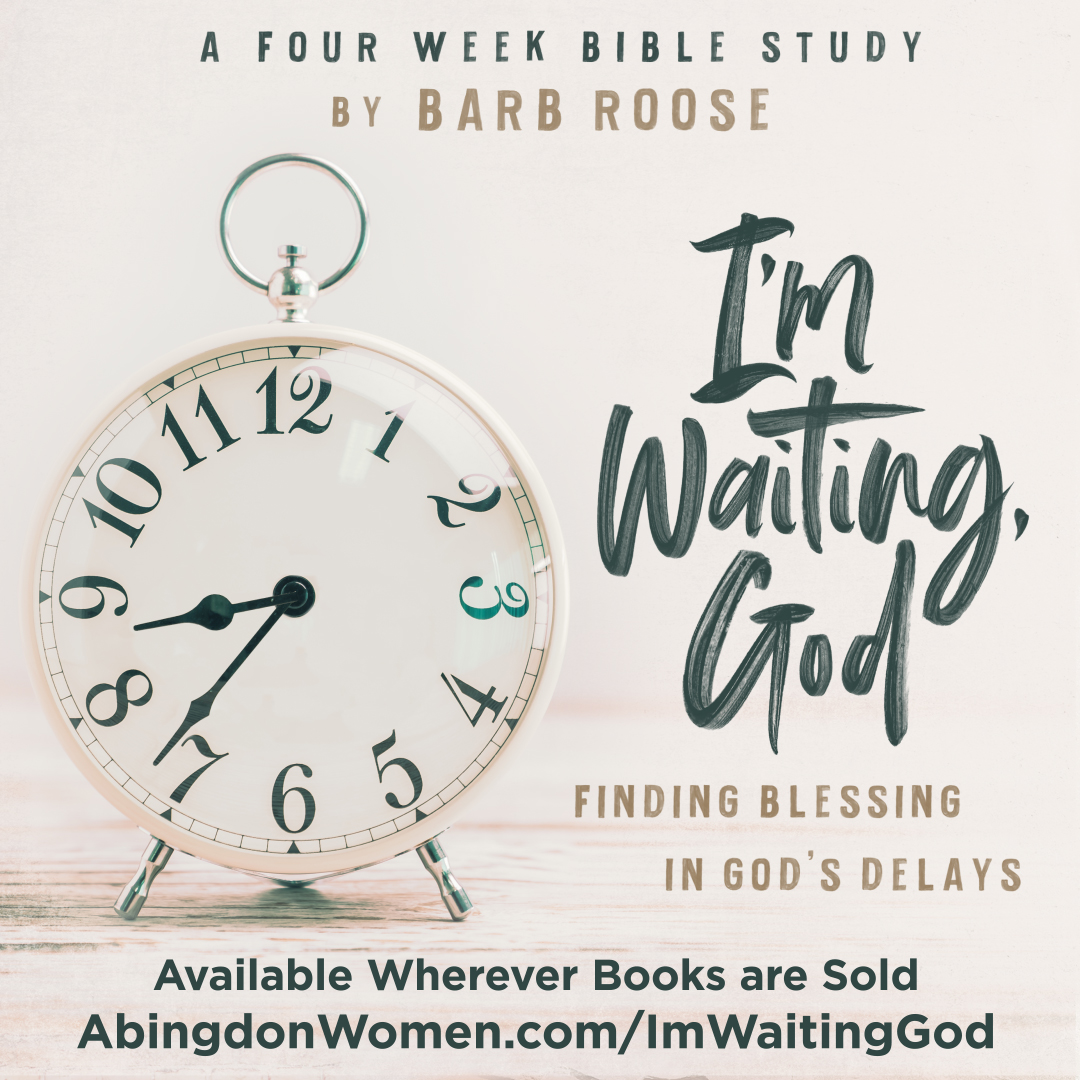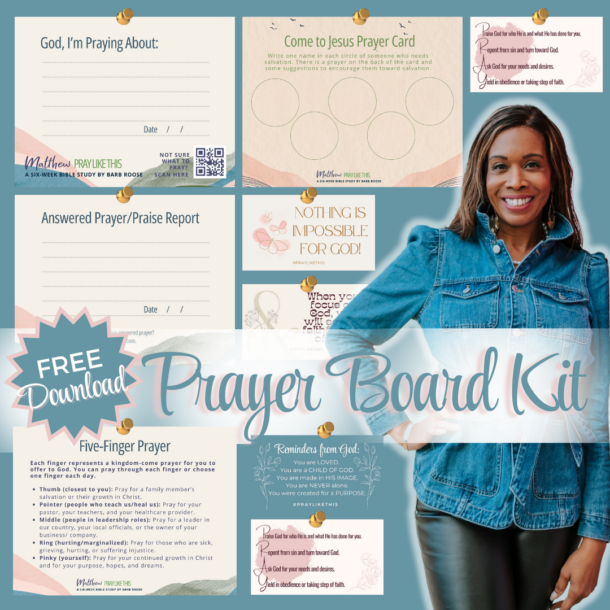I’ve noticed that when I have conversations with my friends or colleagues, there’s a marked increase in comments like, “Sheesh, life feels so much harder than before…” So many of us are having such a hard time.
I receive your emails and DM’s about your medical diagnosis, rebellious children, troubled marriages, financial stress and the loss of loved ones. In the last few years, it feels like we’ve all lost so much.
Did you know that there is a word that describes the sense of loss, sadness, depression or anger? It’s called grief.
How you handle your grief determines if you will get better in life or if you will live bitter.
When life doesn’t go as planned, it’s easy for us to get depressed, angry or both. We know that bad things will happen, but we get bitter when we hold onto what’s missing, broken or changed and refuse to let go. In the face of loss, grief plays an important role in giving us an opportunity to let go, move forward and find peace.
Can I introduce you to a biblical healing tool that I created: The “Emotional Funeral.” Here are three indicators in your life that you need to have an Emotional Funeral:
- The opportunity or experience is no longer possible, even if you want it to be.
- The person or people involved are not willingly cooperating.
- You sense that God is calling you to let it go.
You have permission to have a funeral right now, if necessary. Give God time to move out your hurt and pain in order to fill that space with His love, healing and peace.
In many cultures, grief is honored. There’s an understanding that when someone or something is lost, everyone has permission to feel the pain and sadness.
Unfortunately, in our American culture, grief is considered an inconvenience. It’s an uncomfortable emotion that we’d rather shove at the back of the line behind our need to be productive, successful or unbothered.
But grief is big. It’s loud, even when we think that we’ve silenced it. If we don’t listen to Grief, it starts to scream in other languages, like self-medicating, depression or self-harm until it gets our attention.
But, if we honor Grief, it has the potential to be a gift. Grief can become the fertile ground for new joy, hope and even purpose.
Grief plays an important role in helping us accept that pain and disconnection are part of our fallen world. The only way toward health and healing is to embrace grief, fully feel it, and then learn the practice of releasing it back to God.
We all need to grieve these days. I want to help you. If you set aside time to do the following exercise, you will feel relief from some of the tremendous sadness that is building up within all of us.
Here’s how I do this exercise. There are three steps:
Step #1: Be Real
I choose an afternoon for this experience. Then, I pack a blanket, my Bible, a notebook, and a packet of tissues. Then I drive down to a beautiful river a few miles from my house. First, I lay out my blanket on a patch of grass overlooking the water. Then I open up my notebook and begin listing all the unanswered prayers, unmet expectations, and unfilled dreams. I have to be real about what I’ve lost. On that day, I need to go through the process of letting go of lost time, lost opportunities, or lost options. Holding onto what has died isn’t healthy or helpful. Letting go is painful but important.
I’m often writing with one hand and wiping my tears with a tissue in the other. The sentences in my notebook begin with phrases such as, “I really hoped,” “I wished,” “I truly thought,” or “I prayed so hard that …” Here are some of my funeral notebook entries:
I wished that I had more time with my dad…
God, I really prayed hard for You to remove the addiction from our home…
God, I hoped so much for a chance to speak at that event…
Step #2: Remember God’s Promises
Once I empty myself of disappointments and dead dreams, I grab my Bible and my go-to verses on hope are Jeremiah 29:11 or Isaiah 61:1-3.
“For I know the plans I have for you,” declares the Lord, “plans to prosper you and not to harm you, plans to give you hope and a future.” (Jeremiah 29:11)
I read these verses slowly and even insert my name into the verses. I reflect on God’s faithfulness and how He brought me through the difficult circumstance even though it didn’t turn out as I’d hoped.
Step #3: Release It All to God
Finally, I pray and surrender the hopes, dreams, expectations that will not be. I acknowledge that my prayer wasn’t answered as I’d hoped. This is often a time where the tears flow and big feelings rise up. Sometimes, you may not even have words to say, but you can trust God’s Holy Spirit to speak when I can’t say the words. My funeral prayer is in below.
Letting go and trusting God to bring new life from what you’ve lost is essential if you want to get better and not bitter.
Here’s the Prayer of Release:
I dreamed that (name of dream), but that dream isn’t going to come true. I really wanted it, God! And it hurts. But I need to let that dream die. I need to mourn it and move it out of my heart so that You can fill the space with a new thing for me. Amen.
Conclusion:
What I’ve learned over the past decade of having emotional funerals is that when I let go of my dead dreams, God plants new ones in the fertile soil of faith that has formed as I fought in prayer for those dying dreams or desires.
My prayer is that when you engage in this exercise, you recognize that God can take your grief and give you healing peace and new dreams for your life.
I’D LOVE TO HEAR FROM YOU! LEAD A COMMENT BELOW: What are you grieving these days? Do any of those indicators apply to your life? Is this Emotional Funeral something that you think that you’d like to do?
ADDITIONAL RESOURCES

Are You in a “Waiting Room Season” of Life?
In my four-week study, I’m Waiting, God, you’ll step into the lives of four women in the Bible who experienced waiting room seasons of life. It’s never easy when we pray and have to wait on God, yet, God is always working, even if when you can’t see Him.
I’m Waiting, God offers you deep Bible study, extensive verses on hope as well as practical tools that you can use to learn how to wait well on God. Click here to learn more about this Bible study!




Good morning Barb,
Thank you so much for today’s email. I look forward ever Monday to your e mail.
I have been grieving my relationship with my daughter in law.I have wrote her and told her I was sorry I wasn’t a good mother in law,but my husband and I feel left out so much.They invite my ex over every Sunday for sports and it hurts us that we are never told when our grandchildren have their spot nights and games.We only live 25 minutes away.
I feel like I am not good enough for her.
Hi Maryann, my heart is sad for you. I’m so sorry that you haven’t been able to be as close to your son’s family and grandchildren as you’d like. That has to be painful for you. I pray that this post offered some encouragement and a space for you to ask God what to let go of and what to wait for.
I finally set healthy boundaries for my controlling and at times toxic family. This was 11yrs ago. My Dad and I were always close. But when I did this the rest of the family went absolutely nuts. They cut me totally out of their lives, my Dad eventually caved. (There’s lot more involved) but they kicked me out of the entire family. I tried for 7 yrs sending cards , flowers, pictures , going over to talk, etc… nothing. I talked about God, forgiveness , etc. Nothing they said terrible things to me that I can’t believe a mother would say, or a sister all lies just because they couldn’t control me anymore. I’ve prayed for 11yrs that God would bring us or at least my Dad back to me as he’s 88. But God’s not talking. I know the answer and it’s the hardest thing in world. I’m all 😔 alone. A orphan
I know I have God. But it hurts so much. Maybe I shouldn’t have set boundaries?
Thank you for this, Barb. I have a friend that I have known for 33 years. Our friendship has had its ups and downs. She was like a sister to me growing up. I’ve realized, for various reasons, that it is a one-sided friendship with me doing much of the giving. I feel ready to set boundaries and to let go. After praying about it for some time, I know I am doing the right thing, but it is painful and I grieve the end of a long-time friendship of someone who knows my history. Doing this funeral exercise I think will help with the grief and healing.
Donna, thank you for sharing your story. I am pretty sure that someone else out there needed to see your comment because they’ve been wrestling with the same thing. I’m so sorry for the loss, but I am grateful that you’ve prayed and prepared to do what is necessary.
It’s important to grieve. I like to tell people that tears reflect the honor of what/who you have lost–so go ahead and grieve and cry.
I’ve also found that if you don’t grieve, if you try to push your emotions into the back closet and forget them, that grief will eventually rear it’s head at the most inconvenient time and shanghai you.
I don’t believe in “closure.” It’s a concept people use to give them hope, but it disregards the change wrought by the grief or the experience.
Urging people to “closure” is often cruel.
Grief is like a sine wave–it goes up and down in major swoops early, but after awhile, the change becomes less violent, until it’s a more manageable emotional movement.
If you’re still grieving and people are encouraging you to get help–get help.
There’s nothing wrong–and everything right–to process your emotions with someone who will listen and help.
Thanks, Barb. Excellent post.
All of that is so true, Michelle. Thank you for sharing the wisdom around closure. Sometimes, it’s just not possible to wrap things up in a bow and you’re right, it can be cruel to dangle that expectation, especially for those who should not approach an unsafe person anymore. Thank you for your wise, encouraging words today.
Thank you, Barb for being willing to discuss the things no one else wants to talk about. I’m grieving for more time on this earth with my husband who is slowly dying of cancer and pulmonary fibrosis. We’ve been married 50 years but this isn’t how we planned our retirement together. Last night I woke up crying and yelling for help until I realized I’m not the one who controls my husband’s health. I have to give that back over to God.
I’ll be praying for the one above me, Maryanne ❣️
Hi Theresa, thank you for stopping by today. Oh, my friend, the slow sadness of watching your life and hubby’s life unfold in this way is definitely reason to grieve. You shared great wisdom in choosing surrender and I pray that you continue to experience God’s grace, love and peace in this difficult season.
I lost my daddy in a farm accident when I was 8. I have 4 other siblings who seem to live a healthy emotional life. My counselor suggested that maybe I haven’t truly grieved his loss. The thing is, I think I have grieved his loss every day of my life. I’m now 60 years old. Why have I not been able to handle it like my siblings?
Hi Mary, thank you for sharing your comment. We’re all so unique and different as humans. Loss impacts us in different ways. You’re doing what is best by continuing to invite others to help you find your way through the trauma that changed your life.
This was so needed this morning thank you .I am going to practice this and have my own emotional funeral I think I’m going to add pictures and words also to meditate on and then let go – I am grieving the loss of my family what we once had – The closeness and friendship and the loss of my only daughter an only child and only granddaughter who moved away and grieving the thought of what I thought my future would look like in my 60s
Cheryl, thank you for stopping by and sharing what you’re going through. And yes, that is definitely a lot of to grieve – so I hope that you do. And I also pray that out of that grief, you experience the peace, grace and new life that God brings out of the unexpected.
Oh, Barb! I just loved this. This is exactly what I needed. Over the last 3 years I’ve finally found who I am. My purpose that God has for me. The ones that “I thought” were my friends, my family etc. I’ve had to learn to set boundaries. This has been the toughest! I keep telling myself that it’s Ok to grieve. Having this grieving funeral surely will help!
Thanks for being YOU! 💕
I am in the “Winning the Worry Battle” a class right now at my church. I can’t tell you how much this class has meant to me. Thank you so much for writing the study!
Hi Georgia! Praise God! I hope that you enjoyed the study!
Thank you, Barb, for your godly advice about grief and how to work through it in a way that honors God and loved ones. I am going to try this exercise over the weekend. My husband and I lost a child to suicide last year, and this year I am losing my mother to dementia in what feels like one inch a day. I have been working through your “Surrendered” Bible study. It is so well done, and it is helping me to “let go and live like Jesus.” God bless you and your ministry. In Jesus’ love, Tamara
Tamara, I wish that I was close by to hug you. I’m so sorry for the loss of your child and the slow, unfolding grief of watching your mom descend into dementia. I’m glad that God has used the Surrendered study to meet you where you’re at and breath hope and encouragement into your life.
Thank you for this devotional exercise, Miss Barb, and it’s coming at the perfect time as we close out the calendar year. I’m so sorry to hear about the loss of your family dog, Quimby—how devastating. I need to heal from past relationship disappointments, financial /investment losses.
Hi Dayciaa, thank you for your message. I pray that God uses this post to help you let go and experience God’s healing in those areas of your life.
Barb, God is using you in marvelous ways! Thank you for following His prompts.
Clayton, my husband of 45 years, walked out earth’s back door and ran through Heaven’s gates into Jesus’ arms 3 years ago.
God prompts me in many ways. One is a grief support group at my church. Your blogs, podcasts and emails are often the initiation of inspirational conversation. This one will begin our discussion this week.
Practical ideas like your “funeral” above are exactly what we need as we navigate our grief journeys.
Thank you!!
I’m so glad that this was helpful for you!